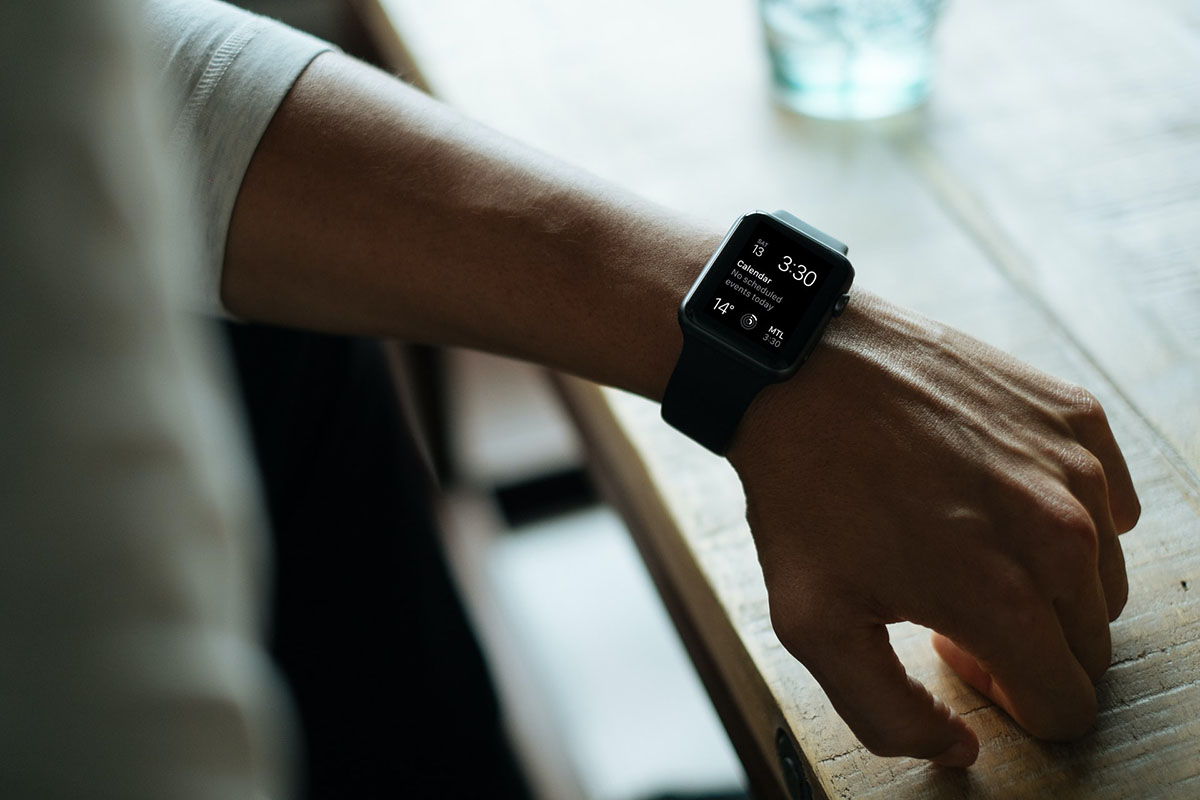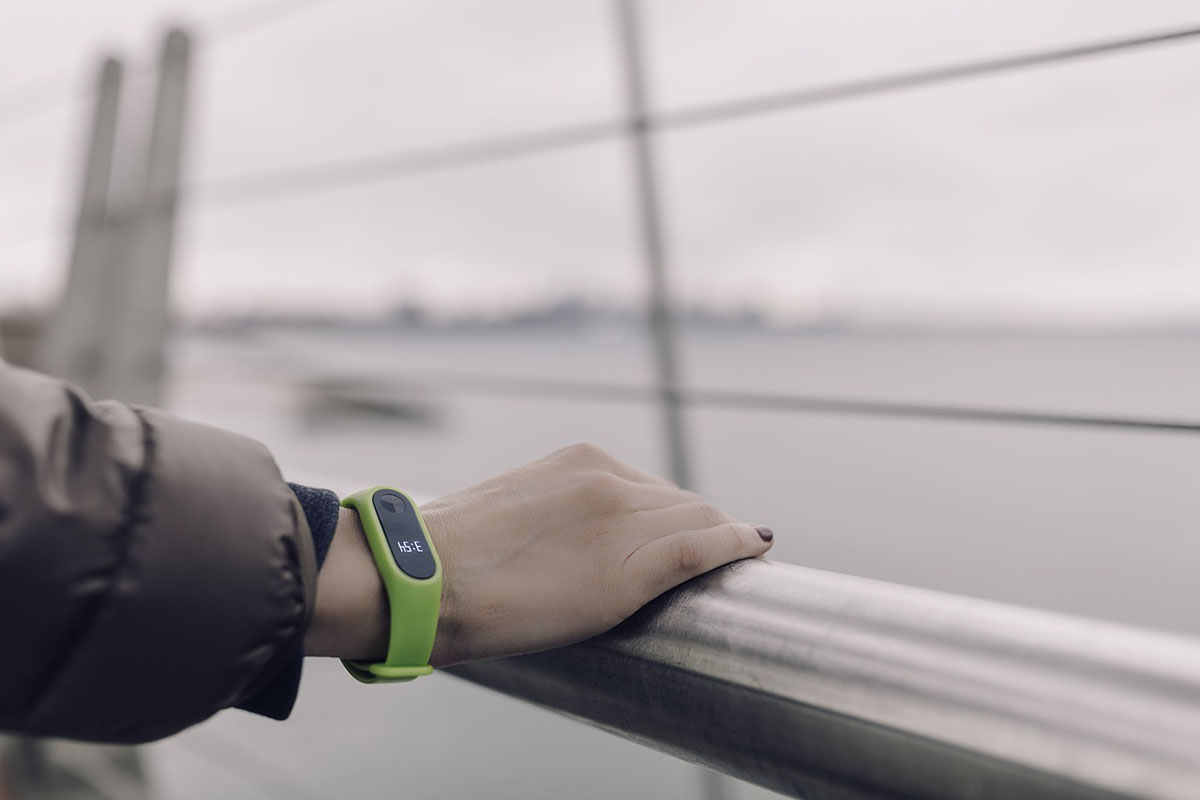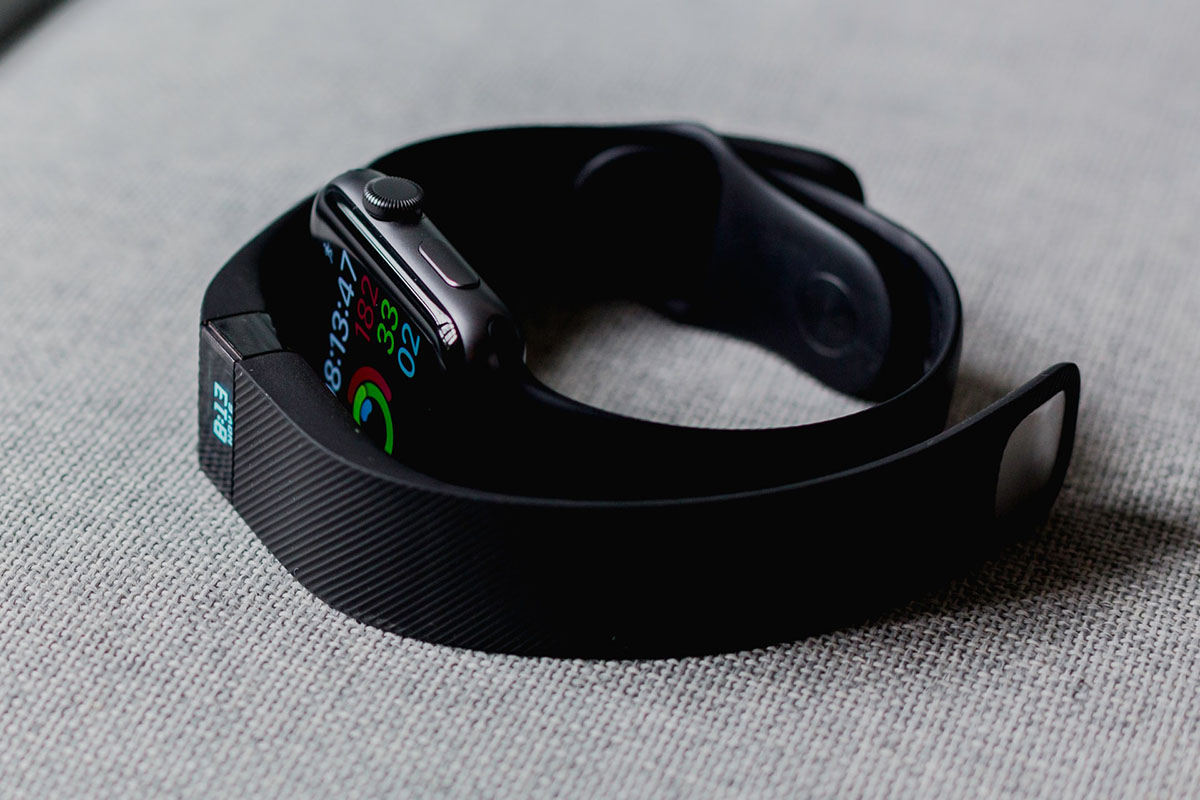Doctors and researchers have started using wearable technology to help with clinical trials related to cardiology, neurology, endocrinology, sports medicine, and more. Today, one of the most popular wearables, Fitbit, has been used in hundreds of clinical trials to date! These trials use Fitbits in a variety of ways to help gather information about their patients for studies.
Here are 10 clever ways researchers are using Fitbit in clinical trials and how it is helping research today.
Fitbit Research on Weight Management for Pediatric Patients
Losing weight is hard, which is why tools that help make it easier are so appealing. Pediatric obesity is particularly difficult to manage, however, due to young people’s physiologic immaturity and emotional sensitivity.
Fitbit can be an excellent tool for weight management in these patients because of its proven efficacy at motivating healthy behavior by providing rewards for certain Fitbit metrics. A key to using Fitbits in pediatric clinical trials lies in using them judiciously with regard to food tracking.
Children under 12 years old might not have a full enough understanding of calories and fat intake. This could accidentally put themselves at risk for developing eating disorders if their Fitbit results directly influenced caloric intake or gave access to medical information such as height or weight data. Younger children should be coached on the correct way to use the device
Pediatric obesity is a national health crisis. Obesity in children has almost tripled since 1980 and currently affects 17 percent of children between 2 and 19 years old.
This trend is especially concerning considering that overweight children are likely to become overweight adults, and carry an increased risk for developing heart disease, hypertension, type 2 diabetes, and other health problems later in life.
Evaluate Cancer Patients’ Fitness for Chemotherapy
Chemotherapy uses drugs to kill cancer cells, but as is always true with cancer, there are risks and side effects. One issue, for example, is that some people can’t handle chemotherapy. So how do you know if a patient will respond to treatment?
Fitbits are being used to evaluate patients’ fitness for chemotherapy – that’s great news for doctors and their patients! Traditionally, doctors assess fitness by measuring a person’s heart rate, but it is not practical in terms of time or cost. The Fitbit offers a more affordable way to measure cardio fitness. This could be very useful in busy clinics where we don’t have time to take an exercise stress test.
Cancer patients with low cardio fitness may be at risk for increased complications from chemotherapy, including pulmonary and cardiac problems. So doctors use cardio fitness tests to determine whether a patient is fit enough to handle chemotherapy treatment.
Since Fitbits are portable and affordable, they could be a huge help to these busy clinics. They offer an easy way to get accurate fitness results without taking up much time or money.
You can even measure cardio fitness right in your patient’s own home – that means you can evaluate their fitness without making them visit your clinic! The data also gives you valuable information about each patient’s progress as they begin chemotherapy, which can give you an early warning if something is not going well so you can make adjustments before it becomes a problem.
Fitbit Clinical Trials for Preventing Diabetes
Fitbit research studies in preventing diabetes in adolescents has proven that teenagers who have a higher BMI and Fitbit device usage were at a lower risk of developing diabetes than those with lower BMI or no Fitbit devices.
The Fitbit clinical trials were conducted with teenagers, where they measured their BMI and also looked at how many steps they took every day using a Fitbit device. They found that there was a positive correlation between higher BMI and less use of fitbits, proving that teenagers who have a higher BMI are less likely to take steps or engage in other healthy activities which help lower their risk of diabetes.
 To help prevent diabetes in adolescents, more clinical trials should be conducted in order to determine whether a higher BMI is correlated with lower usage of fitbits. Doing so would enable researchers to better understand how they can help adolescents who are at risk of developing Type 2 Diabetes. However, more research has to be done before we see what kind of effect having higher BMI and less fitbit usage can have on teenagers.
To help prevent diabetes in adolescents, more clinical trials should be conducted in order to determine whether a higher BMI is correlated with lower usage of fitbits. Doing so would enable researchers to better understand how they can help adolescents who are at risk of developing Type 2 Diabetes. However, more research has to be done before we see what kind of effect having higher BMI and less fitbit usage can have on teenagers.
Fitbit Research Studies with Disease Tracking App
Feasibility study of Fitbits used in conjunction with a COPD app to determine whether patients will be able to use a Fitbit reliably enough and easily enough to have its readings be used in a study of COPD symptoms. The end result is that patients wearing Fitbits experienced better compliance than those using paper diaries, but that a more simple app may be needed for future studies.
The study involved 30 COPD patients that were going to a pulmonary function laboratory to undergo lung function testing. The patients had to have at least moderately severe COPD according to GOLD guidelines and must be undergoing lung function testing regularly.
Before they went in for their visit, they were given either a Fitbit Flex or a paper diary (titled Personal Daily Tracking Form) and instructed on how best to use it during their day (i.e., wearing it continuously, keeping track of exercise and general daily life, eating habits).
Each participant then kept track of their symptoms while they wore it 24/7 until they left for their appointment. They were then asked not to wear any devices for two days so measurements taken could be verified before using any data from those two days in results.
The study showed that patients wearing a Fitbit reported more COPD symptoms than those who did not wear a device. They also reported more symptoms than what was measured in their first visit. The researchers concluded that they needed to work on designing a simpler app and have it available on multiple platforms so that future studies will use only one app rather than having to give everyone a different tracking method.
Track the Quality of Life for Brain Tumor Patients with Fitbit
A group of researchers found that people with brain tumors tend to sleep less at night. As you can imagine, the patients in the study reported increased tiredness and fatigue during the day as well.
The researchers decided to use Fitbit wristbands to evaluate their patient’s activity trends as well as used surveys to collect data about their sleep quality since surgery. They found that it was possible for patients to have better quality of life over time as their tumor receded and left fewer side effects in its wake.
While some patients experience a spike in activity levels shortly after surgery, most patients feel fatigue and decreased activity even years after their tumor has been removed. The researchers believe that using Fitbit can help monitor their physical conditions over time.
This is important because brain tumor survivors tend to suffer from more problems than simply headaches or dizziness—they’re also at higher risk for obesity, heart disease, diabetes and Alzheimer’s disease. By tracking their overall well-being through Fitbit, doctors will be able to make sure that these patients get treatment before any of these conditions set in.
Since Fitbit trackers can measure how much people move each day, researchers were able to determine whether patients were meeting their physical activity goals. They could then adjust treatment plans and provide encouragement if needed. This is a major advantage over other measurement methods because scientists can evaluate how different drugs might improve a patient’s lifestyle by analyzing their wristband data.
Using the Fitbit as an Intervention for Patients Recovering from Alcoholism
While Fitbit is already used in various health-related ways, one application which is relatively new on a large scale is for use as an intervention for patients recovering from alcoholism. Typically, such interventions have relied on some kind of wearable technology as well, with patients given either a pedometer or some kind of computer-based tracking system.
Researchers wanted to see how using a Fitbit in isolation might influence a recovering alcoholic’s ability to stay sober. The researchers recruited women who were all taking part in Alcoholics Anonymous and gave each woman a Fitbit One tracker along with instructions on how to use it. From there, they followed these women over a period of three months and found that those who were wearing their Fitbits more consistently reported better feelings about themselves.
These results are encouraging on several levels. For one, they suggest that we may be able to identify and help patients in a non-invasive way based around wearable technologies like Fitbits. These technologies have become increasingly common and are becoming less expensive at an increasing rate as well, making them an excellent choice for medical professionals looking to track progress without causing any long-term damage or discomfort. For another, they also demonstrate how these devices can act as a motivator for recovery if used in combination with other types of programs as well.
Find Connections Between Fitbit Data and Diseases
Fitbit data has been linked to a number of diseases and conditions, including some with very few other ways to identify the root cause. Researchers used Fitbit data from volunteers and found that sleep-deprived people tend to get less physical activity, which can impact asthma control.
Having a record of patients’ activity levels (rather than asking them) helped the researchers find these connections between sleep and asthma. Other research has shown that Fitbit data correlates well with an established measure of physical fitness, suggesting it could serve as a useful alternative for non-cooperative subjects. A study using commercial insurance claims data showed how Fitbit users were more active overall (and spent more time standing) than non-users.
Sleep and asthma are connected, but it is not immediately clear how. Doctors have long known that sleep deprivation can aggravate asthma symptoms. But they don’t know exactly why—it may be something as simple as staying up late makes people more likely to eat poorly or spend less time exercising, which can affect asthma control. The American Lung Association set out to find a way to track sleep-deprived patients’ activity levels to see if they were less physically active overall, which would make them more prone to respiratory infections and thus worsening their asthma.
The researchers used data from volunteers who wore a Fitbit for seven days, and then tracked whether or not the patient had asthma and what symptoms they reported. They found the patients who got less sleep were less physically active in general, which was associated with more severe asthma symptoms. The findings suggest that monitoring patients’ activity levels could be an important part of assessing their physical health, as well as how well their medication is working to control their asthma.
Identify Patients at Risk for Surgery Complications with Fitbit
After surgery, complications can occur with the patient and that may take the patient a while to notice if they are expecting to feel off after surgery. A study looked at patients to see if wearing a Fitbit could help identify patients who may be at risk for post-surgical complications due to deviations in their vital signs.
Researchers found that the number of calories burned correlated with changes in blood pressure and heart rate during surgery and determined that high-calorie burners were more likely to have complications than low-calorie burners. What does it mean?
The idea behind using a Fitbit to help identify patients at risk for surgical complications comes from research that looks at physiology as a response to surgical stress. High calorie burners are usually healthy, but an otherwise healthy person may have underlying cardiovascular disease that is not present in their medical history and be more likely to experience an issue during surgery than someone with low calories burned.
The researchers concluded that using a Fitbit to assess calorie burn correlated with changes in vital signs, and using it before surgery could help identify patients at risk for surgical complications.
Create a Text Message Program to Increase Patient Physical Activity Based on Their Fitbit Data
A study found that sending tailored text messages to increase physical activity in cancer survivors was successful. For example, they sent text messages such as, “You are not meeting your goal and do you need a reminder?” With a link to a quick survey regarding physical activity after 3 days of not meeting their daily goal.
This type of tailored text message intervention could be especially useful for people with chronic conditions that may affect their activity levels, such as cancer survivors, because it is individually-tailored based on data from wearables like Fitbit.
Another study found that sending tailored text messages to cancer survivors and providing a website for additional information were both successful in increasing physical activity levels. The website led to increases in participants’ step counts when they returned over 6 months later.
 This type of program could be especially useful because it is individually-tailored based on data from wearables like Fitbit and delivered through multiple channels including text messages, websites, or even social media platforms to reach people in different ways.
This type of program could be especially useful because it is individually-tailored based on data from wearables like Fitbit and delivered through multiple channels including text messages, websites, or even social media platforms to reach people in different ways.
Researchers with access to the data can tell if someone is having an unusually high heart rate that day and send them encouraging text messages or reach out to see if they are feeling well.
Monitoring Physical Activity and Sleep Quality for New Mothers
Fitbits have been used in a variety of clinical trials that look at specific health indicators. For example, Fitbits were used to determine whether monitoring physical activity and sleep quality for new mothers would promote physical activity.
The researchers found that active mothers had higher self-esteem, were more likely to want to exercise again in 2 months, and saw less depression compared with mothers who didn’t use a Fitbit tracker. Importantly, it was these three factors (over and above improvements in physical activity) that actually affected weight loss and overall mood over time.
As you can see, this type of study is very interesting in what it reveals about why using a Fitbit can actually promote physical activity. These researchers found that mothers who wore their trackers most days had higher self-esteem, lower depression scores, and a greater desire to exercise again in 2 months compared with those who didn’t wear their tracker as often.
This is an important reminder of how small changes to your daily habits and environment—such as wearing a Fitbit on your wrist—can have lasting effects. It also shows how you should think about different factors that could influence your health when making decisions like whether or not to use a fitness tracker.
Fitbit research is becoming more mainstream. They can be used in a variety of ways to help studies increase patient engagement and monitor patients for potentially harmful side effects of medicine or surgery. The low cost of Fitbits make them more viable for research studies than some other wearables on the market.








